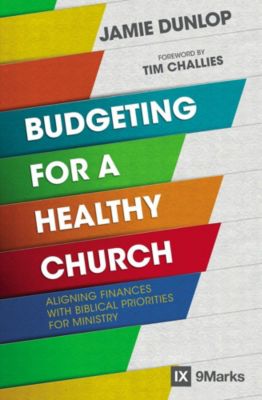
As church leaders seeking to understand inflation, we must not only be aware of its impact but also continue to move forward in ministry.
By Scott McConnell
While many Americans had forgotten the negative impact inflation can have, its emergence has caused many organizations to pull back on financial plans. As church leaders seek to understand inflation, it’s important to not only be aware of its impact but to continue to move forward with ministry.
Where did inflation come from?
Rapidly increasing inflation was a natural byproduct of huge pandemic stimulus payments to individuals and businesses. These helped many nations avoid economic catastrophe in 2020, but they also set in motion a series of economic reactions. This extra spending money led to a spending spree that soon multiplied as people ventured out to shop more regularly. Meanwhile, many businesses had cut capacity early in the pandemic and now had difficulty meeting demand. So, prices naturally rose with demand.
The desire for new things overwhelmed the transportation system. While this system had steadily grown to handle pre-pandemic demand, now, the unprecedented greed made the entire system shudder. There were not enough ships to carry it all. By May 2022 we set a record for the volume of shipping containers brought into the country. The ports could not unload the ships fast enough. Trucks and trains could not be loaded fast enough. And the cost of transporting goods rose quickly.
The supply of what we craved was lacking, so the long-silent but ever-present inflation beast awakened. Prices steadily rose, but demand was unyielding. We had gone a few months without our new toys, and we needed them now more than ever. We had put off our vacations and had to travel now.
Additionally, many workers who had exited the workforce stayed away for their own protection or to take care of family members. There became a clear lack of available workers.
Managers had faced this challenge before and knew what to do. They raised wages but didn’t see an increase in applications. Workers equipped with more to spend ran to buy more. And the inflation beast roared, acknowledging their cries.
By July 2022, dissatisfaction with work hit astounding levels, with 40% of workers saying they are considering leaving their jobs soon. Every month from January through November 2022 four million Americans left their jobs hoping for something better elsewhere. Not surprisingly, economists soon reported productivity was down. The hiring and training costs of all the new employees will continue to drive up costs for organizations in the near term.
The Federal Reserve began raising interest rates in March 2022 to slow the economy and control inflation. After seven increases, it appears inflation has peaked. But it is still much higher than we have experienced for several decades.
How has inflation impacted churches?
Before people realized inflation was out of control, most churches had financially benefitted from the pandemic. People went out less, so they spent less on experiences and restaurants, leaving them with more dollars at the end of the month. Americans also received stimulus checks that provided unexpected dollars to spend, with a minority of Americans needing this money for survival. Churchgoers who owned businesses were often in a position to be generous toward their churches, so finances typically far outpaced attendance through 2021.
While churches hope generosity will be sustained, pastors were already feeling negative economic forces late in 2022. Their attitude had returned to what it was in 2020. While only 23% of churches had less income than the previous year, every church was facing increasing costs.
Costs of electricity, water, heating, resources, and services were all rising. But a church’s largest expenditure is on personnel. It is only fair to give ministers and church staff raises that keep up with rising costs. Since the start of 2020, prices have risen by 15.5%. Churches that have given raises to keep up are looking at expense growth unseen in the U.S. since the 1980s.
Far more churches gave smaller raises or no raise at all to their ministers and staff, pushing the burden of inflation completely to their staff to bear on their own. Anyone without a raise essentially received a substantial pay cut equivalent to the inflation percentage.
Some churches may reach a tipping point where they must reduce staff so they can continue to cover their expenses. In 2021, 2 in 5 pastors said they are often concerned about their family’s financial security. Some pastors may need a second job to make ends meet.
A relatively small portion of churches crosses this line each year where a minister needs to add an outside job. But over time, larger and larger churches will face the need to utilize a model in which more church staff are not full-time employees at their church.
These are not new trends, but inflation is highlighting a nagging reality. Church is a people business, and organizations rarely find cost efficiencies for activities that require live employees. Therefore, church costs will continue to rise faster than the average growth of a congregation’s income.
How should churches respond?
The emptiness so many are trying to fill with new purchases and new jobs is an opportunity to introduce people to the only One who can satisfy our longings and the only One worthy of our worship and devotion.
At a particularly dark time in Judah’s history, before Jerusalem fell and they began 70 years of exile, God gave His people instructions on how to live in their temporary home. The U.S. is not our home. It is a temporary dwelling place for us as citizens of heaven and resident aliens here. The Lord said, “Pursue the well-being of the city I have deported you to. Pray to the Lord on its behalf, for when it thrives, you will thrive” (Jeremiah 29:7, CSB).
Pursuing the well-being of those in our community means wanting the economy to be healthy enough to keep employment high. It means we don’t bury our resources in fear, but we contribute and make wise financial decisions. It means we see those hurting and suffering injustice and look to serve them and stand at their side.
Count the costs
Jesus took as a matter of fact that wise leaders count the cost before they begin a venture (Luke 14:28). He used this to illustrate that people should count the cost of following Him before they do so. Leaders should understand that costs are rapidly changing due to inflation. Decisions should be based on accurate costs for what will be purchased.
Give God the gaps
Whether it is increased costs or slippage in giving, many churches may see a gap appear in their budget this year. When we don’t see enough resources, we must go to the One who has more than enough. It is irresponsible to intentionally create a gap in which expenses exceed income. But when you see a gap beginning to appear, acknowledge it exists and ask God to meet the need. He may provide from His abundance, or He may reveal an expense that is not essential to His plan.
“When we don’t see enough resources, we must go to the One who has more than enough.” — @smcconn Click To TweetCare for the poor
Inflation hurts low-income households the most. Many who had enough income to cover essentials last year do not this year. Many who have good incomes have been caught up in credit card debt. Americans greatly reduced their credit card debt in 2020. As the balance rises, much more of the payments being made are going toward interest rates that rose rapidly in 2022. Credit card interest rates currently average 19.07% for existing accounts (higher for new accounts). As tangible needs increase, look to serve those in need.
Invest in ministry
Businesses typically only have one goal—profit. While churches have to keep expenses below income, that is not their primary goal. Churches are seeking ministry impact. So, with whatever amount God entrusts your church this year, invest it in kingdom purposes. It may require new methods or a new direction, but pulling back with the resources God has given you is not an option. In Jesus’ parable of the talents, the thing that angered the master the most was the servant who slowed down and tried only to keep what the master had given him. The master wanted his servants faithfully putting the resources he gave them to work regardless of the economic environment.
“With whatever amount God entrusts your church this year, invest it in kingdom purposes.” — @smcconn Click To TweetShare the hope of Christ
Pursuing the well-being of those in our community means we are proactive in introducing people to the hope, meaning, and satisfaction that is only found in a relationship with God. This message will sound fake if we aren’t pursuing the other aspects of their well-being. But this message is what sets us apart from companies that do their part for our society.
For permission to republish this article, contact Marissa Postell Sullivan.











